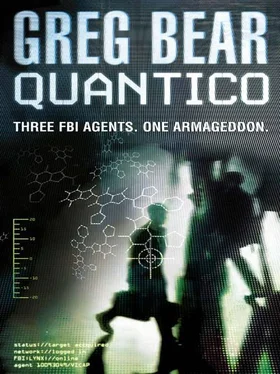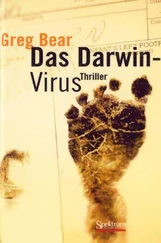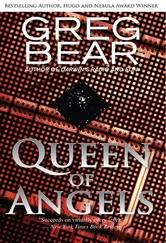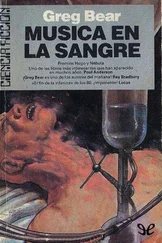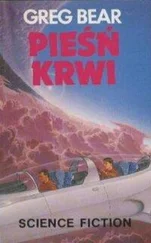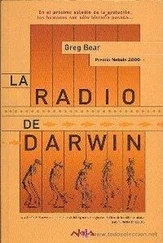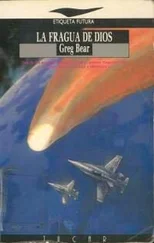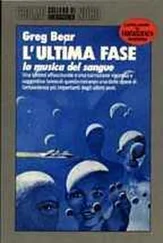Fryers were clever little generators of electromagnetic pulses, essentially arrays of hundreds of high-powered, needle-shaped electromagnets that would jam out through a molded lattice of nickel and copper when a small internal ball of explosives went off. In the last few years fryers had been miniaturized for use by terrorists in England, Spain, and Saudi Arabia. They shorted out all solid-state electronics within ten meters. It was difficult to shield bomb robots sufficiently to avoid damage.
Fryers were used by terrorists who wanted to force humans to confront their bombs in person.
Andrews looked around the little trailer and raised his hands from the controls. ‘I can send in another,’ he said, his eyes sad.
‘No need,’ Griff said. ‘We all saw her. There’s a child in there, probably a little girl.’
Rebecca sighed. ‘Did they forget her?’
‘Maybe she didn’t want to go to church,’ Griff said. ‘It happens. Too many kids and you lose track.’ He stood up, shoulders and neck bowed to fit under the roof. His booted toe nudged one of the suits. They were Ang-Sorkin Systems EOD-23 models, made in New Zealand and now standard around the world. EOD referred to Explosive Ordnance Disposal. ‘Time to fit me out with one of these.’
‘No way,’ Andrews said. ‘This isn’t your squad.’ His expression said it all: the FBI agent was older and a bit on the heavy side. Nobody wanted to go in after a guy who’d had a stroke or a heart attack-and if either of these things happened while he was handling a detonator, there would be no need.
‘I’ll go,’ Rebecca said.
‘Well, hell, if you’ll pardon me-’ Andrews began.
Griff put his fingers to his lips, let out a shrill whistle that had them holding their ears. He raised a beefy hand. ‘I’m in charge. And if it means anything, I was once rated a Master Blaster in Navy EOD.’
‘No kidding?’ Andrews said. ‘Crab and laurels? And how old were you then?’
Griff’s lip twitched. ‘I used to teach at Redstone. That’s how I got assigned to the Patriarch. I’m the lead going in, and because I am old and feeble, and may not be up on the hottest new techniques, one of you can come with me.’ He eeny-meeny-miny-moed with a thick finger around the back of the bomb van between Rebecca, Andrews, and Watson.
Griff’s finger stopped at Watson, as he had known it would. He pointed to the suits.
‘Oh, goody,’ Watson said.
Rebecca started to speak but Griff swiveled and cupped his hand over her mouth. She glared over his thick fingers. ‘You can tell me what to look for,’ he said. ‘Tell me what I’m seeing. Okay?’
Rebecca removed his hand with two delicate fingers.
‘Sorry,’ Griff said, brows furrowed.
‘Sorry won’t cut it if we lose our evidence,’ Rebecca said.
‘Yes, ma’am,’ he said. ‘Thanks for caring.’
Griff radioed the agents up the road and told them to keep a close watch on the perimeter in case anyone tried to enter or leave. If the girl fled the barn while they were inside they’d pull out and resume robot operations.
Andrews and the tech helped them suit up, a process that took ten minutes. The last step-putting on the aerodynamically curved face-plate and locking it to the chest rig-always made Griff feel like a deep-sea diver. Rip-and-zip could peel them out of the suits in less than twenty seconds if they needed to run away-otherwise, they’d be clumping around like big clumsy beetles.
Griff looked through the thick plastic plate at Rebecca Rose. Her quiet anger comforted him.
‘You’re my good luck charm, Becky,’ he said.
‘Screw you,’ Rebecca said, not unkindly.
In the twilight, the bombot approached the barn door, rammed a metal arm against the edge, dug in, and pushed the door back so they could enter. Wheels on the rusty track squealed in protest and the door shivered as it slid open, but that was all.
Through his face-plate, Griff could see nothing in the gap. Just a dark and empty yawn.
‘What if there is no little girl?’ Alice Watson asked as they waddled toward the barn. Her voice came through his earnode like a buzzing fly. ‘Wouldn’t that be a hoot?’
The bomb truck kicked on a floodlight and trained the intense blue beam into the entrance. A row of stalls and the cart with its strange, bundled pipe sculpture stood revealed in the harsh light. Beyond, like serried paper cutouts against velvety blackness, stood workbenches, cylinders, hanging ropes-a hoist and pulley.
Griff turned and surveyed the farmhouse, the yard, the nearly black ridgelines hackled with trees, the deep blue of the dusk sky with cottony rips of yellow and orange cloud. He tried to find the gap where the fire tower now stood revealed. He could not. It was late, and his eyes were not sharp enough.
No doubt he was missing other things as well.
‘Me first,’ he told Watson. ‘Stay out of my spray line.’
Below glossy nested plates and front pads, the Ang-Sorkin suits were jacketed with water-filled micro-piping that networked around the exposed front surfaces and exited through sealed blow holes along the back. The shock front of an explosion, as it met the smooth plastic curves of the front pads, would find little purchase. Particles carried by the blast, including shrapnel, would dimple the plates and possibly even pierce them-but all but the largest and sharpest pieces would be stopped by an underlying layer of monocarbon fiber. What gaseous force-and force from shrapnel-did not flow around the suits and faceplate-still a major proportion of the blast pressure-would compress the micropiping beneath those layers and heat the water to steam, which would then jet from the rear of the suit in hundreds of gaseous needles. Within six or eight inches, those water needles would be sharp enough to cut holes in human skin or pierce another suit. You always stayed out of someone’s spray line.
Bomb suits had become very sophisticated. But entering the barn at a deliberate plod, Griff did not feel much safer. He might as well have wrapped himself in Kleenex like a Halloween mummy. Or faced a howitzer in a brown paper bag.
Suit cameras-two mounted to face fore and aft, and a third focusing exclusively on a point less then a meter in front of their breastplates-conveyed some of what they were seeing back to the bomb squad truck and the bombnet viewers. Gimbaled lamps mounted above their face-plates silently played beams of light wherever their eyes were looking. A small heads-up display mounted below the chin projected data abstracted from the video the bot had captured before being fried. The bomb squad computers in the truck had already used enhancement techniques to outline and identify the objects recorded during the bot’s few minutes inside the barn, and marked them on a floorplan.
Griff found the white and pink map distracting and switched it off using his tongue mouse. Once inside, he could see well enough. The barn had been converted into what looked like a basic engineering shop. A metalworking lathe and drill press covered a wooden workbench behind the pipe sculpture. He was starting to think of the weird shape on its cart as the Calliope, just for reference. ‘We’re passing the Calliope now,’ he said. ‘Looks like it might have been made to disperse powder or water-sort of like a big sprayer or fountain.’ He was thinking of the powder on the trees. ‘Maybe they used it for pesticide.’
‘Pipes are too big,’ Watson said. ‘They’re more like mortars. It could be some sort of hedgehog-a launcher. Could take out a city block if it was lobbing shells.’
Griff made sure to pause before each area. ‘Alice is right. Not a sprayer.’ If he didn’t make it, someone could use the video to figure out what had killed him. They advanced to the workbench, then turned. The bench was littered with tools-wooden and rubber mallets, split tube-shaped molds lying open, tamping implements, scraps of foil and paper, brushes.
Читать дальше
Конец ознакомительного отрывка
Купить книгу
